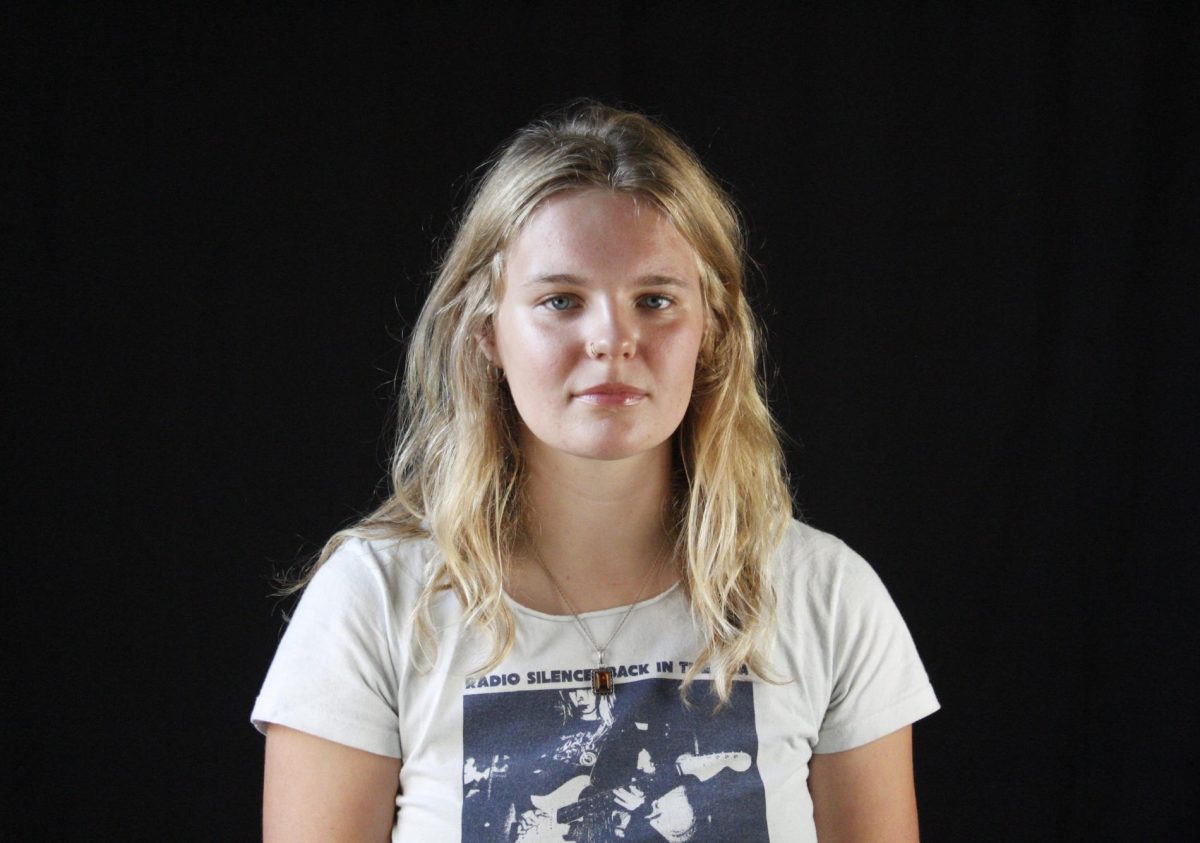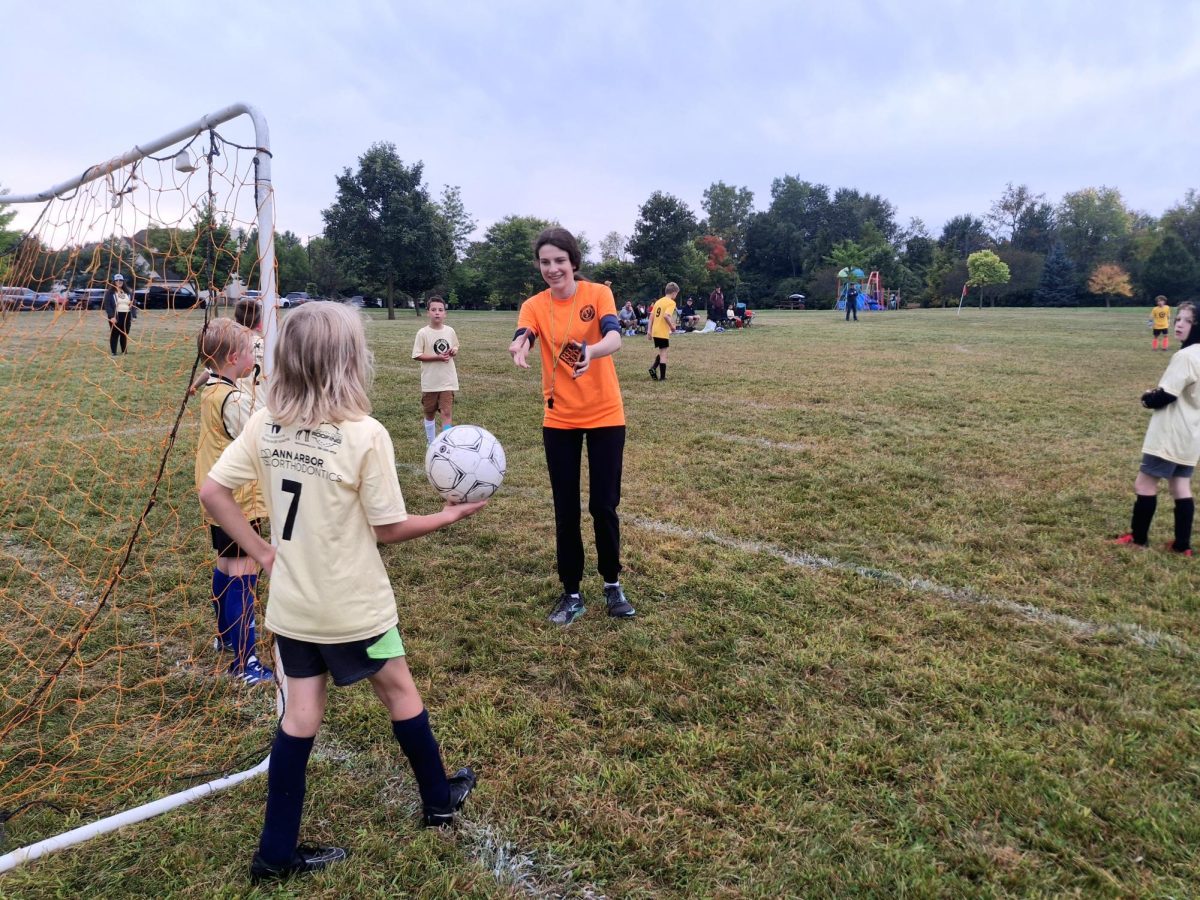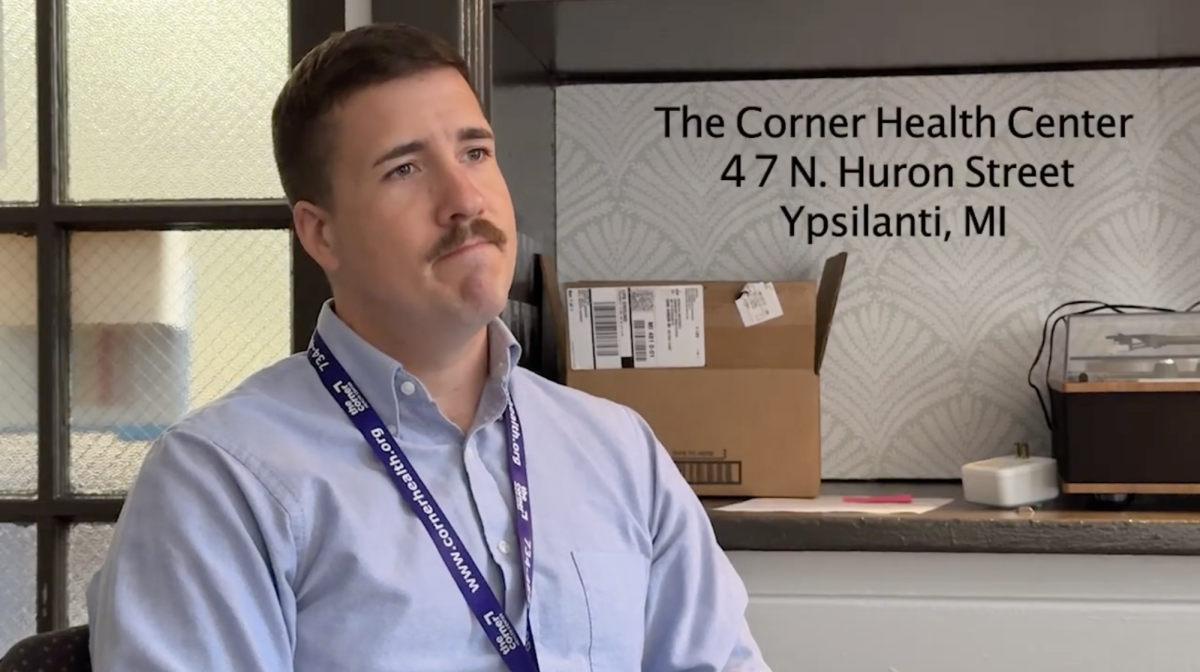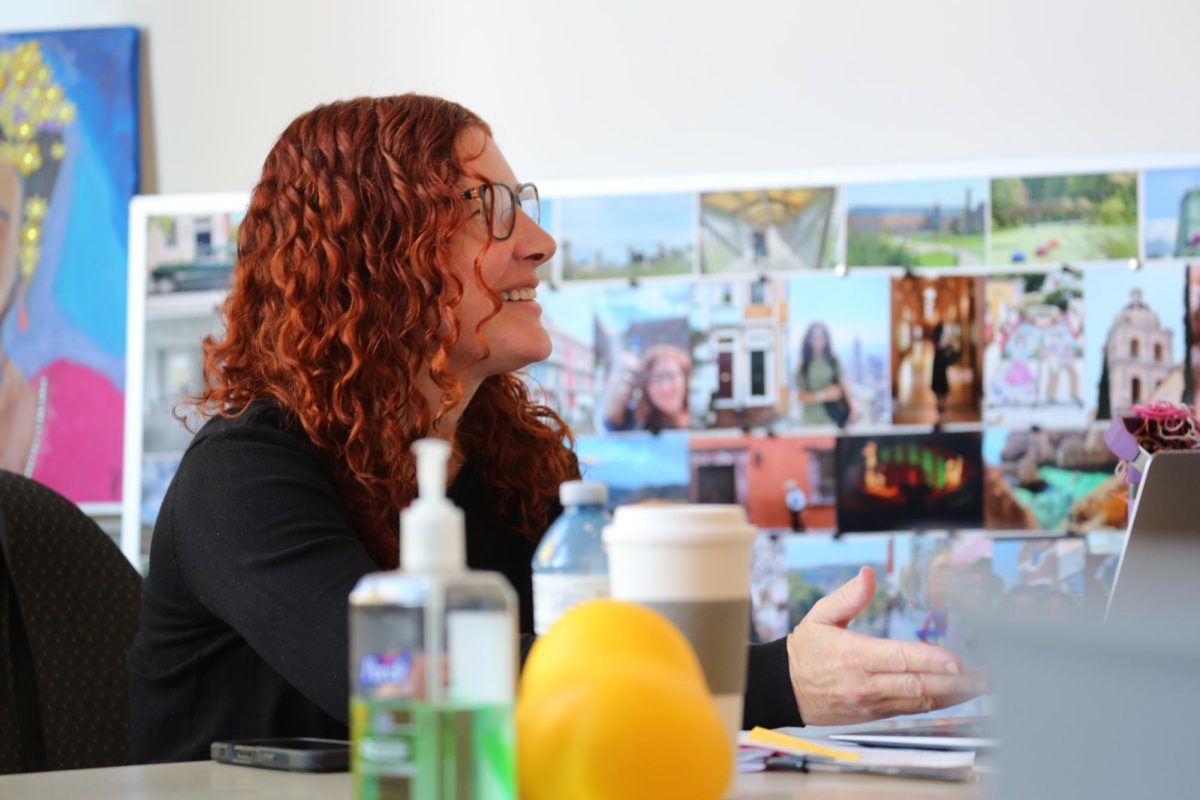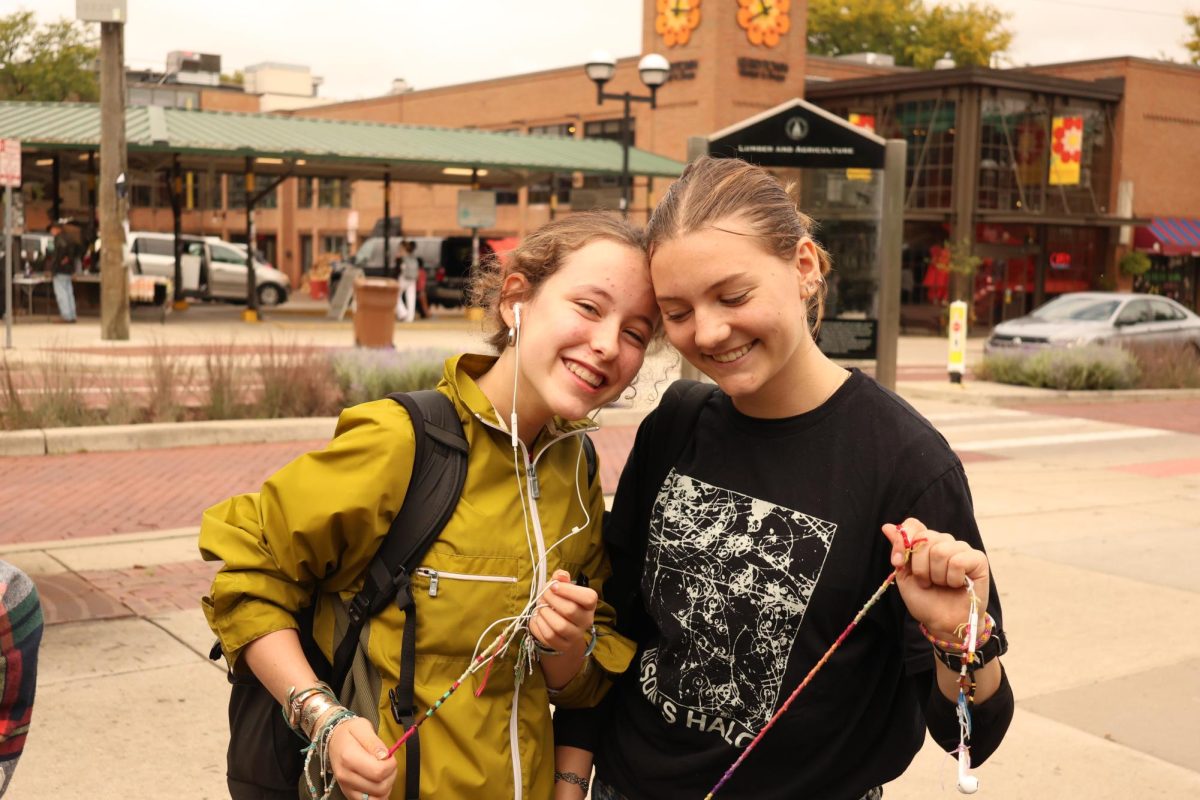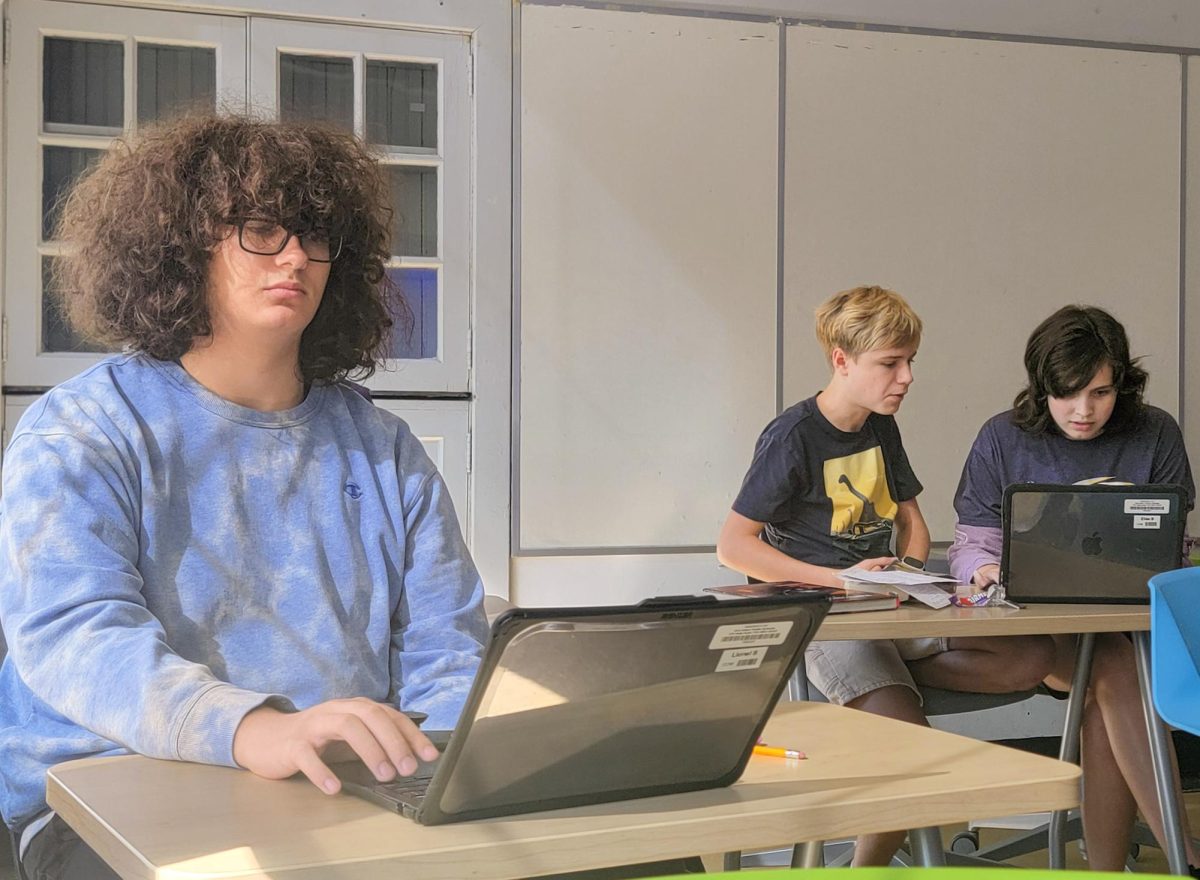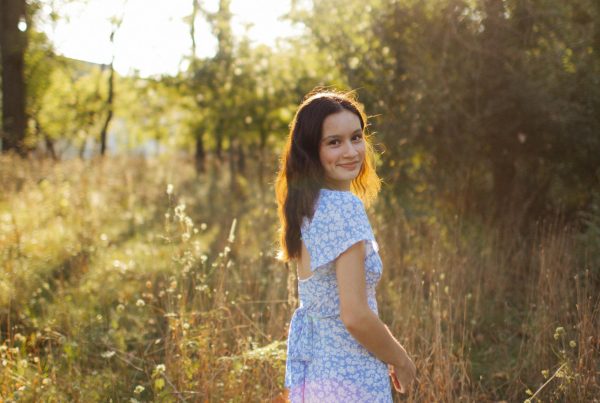“Good luck.” That is all Eloise MacDougald’s teacher said to her as he dropped her off at the edge of the woods. With nothing but a tarp, a rope, a sleeping bag and some food strapped to her back she would be spending the next four days camping, completely alone.
In the second semester of her junior year, MacDougald attended the Mountain School in Vershire, Vermont. Located on a farm up in the mountains, the school is very secluded with the closest gas station being over 45 minutes away. Known for its unorthodox ways, activities at the Mountain School include farming, hiking, and an infamous four-day solo camping trip.
As MacDougald watched her teacher drive away, nothing but woods ahead, her nerves started to set in. She had tried to go into the experience without any expectations but this was going to be the longest time she had ever spent alone. No phone, no running water, no one to help.
“If I’m being honest I was freaking out,” MacDougald said. “I kept falling on the hard terrain and I couldn’t find a place to camp but I just kept telling myself, ‘Come on, you can do this.”
Eventually, after walking deeper into the woods MacDougald was able to set up her tent. Though it was not immediate, she found peace in her loneliness. Over the course of the four days she read books, journaled and even taught herself how to juggle. It is nontraditional experiences like this one, a solo camping trip, that she hopes to continue having long after high school.
However, her interest in the nontraditional has not always been well received. Especially living so close to the University of Michigan, it can feel like everyone is on the same path: going straight from high school to college. And that anything other than that path is somehow less than.
“Every time I tell people that I am considering a gap year or a gap semester I get the same confused reaction,” MacDougald said. “They’re always really surprised by my decision. But I feel like what people don’t understand is that nontraditional does not equate to slacking off.”
Even with the Mountain School’s relaxed nature, MacDougald took multiple courses such as Environmental Humanities, Honors English and Culinary Studies, that she considers to be some of the most challenging and in-depth that she’s taken in her life. It is proof to her that not only can a different style of education work but a relaxed environment and rigor are not mutually exclusive.
One of the programs she is looking into for post-graduation is the World Wide Opportunities on Organic Farms otherwise known as “WWOOFing”. Through this program, she would get to travel around the world and work on different farms for room and board. Another program she is looking into is called “Class Afloat” which would give her the opportunity to live on a tall ship from the 1400s, work alongside other students and travel to over 20 different ports. No matter which program she chooses, it is a way that she can work, travel and learn all at the same time.
“When I ask people what they wish they would have done at my age, nine out of ten say they wish they had taken some sort of gap between high school and college,” MacDougald said. “We’re all lost, we don’t actually know ourselves and sometimes we just need a little extra time.”
Eventually, MacDougald does plan on attending a traditional four-year university. But for now, her goal is to seek out unique experiences, just like the ones that she had during her semester at the Mountain School. Afternoons spent playing Spikeball, morning walks to the sheep barn, or long, casual conversations with her Environmental Humanities professor were all things that would have never happened had she not been open to the Mountain School’s nontraditional ways.
“I think that before going to the Mountain School I would have been scared to take a gap year,” MacDougald said. “But what I have realized is just how much good can come from it.”
Whether she spends the next year on a farm or out at sea, she’s ready for the adventure. MacDougald’s gap year or gap semester will be the opposite of a “gap.” It will be filled with activity.
“I think I would be a lot more scared if I was just going straight to college,” MacDougald said. “But at this moment, I’m just excited and looking forward to what is to come.”
Just like when she stood at the edge of the woods, her teacher driving farther and farther in the opposite direction, she wants to relish in not knowing. Not knowing what the next moment, or day or week may hold. To MacDougald there is nothing more exciting.



